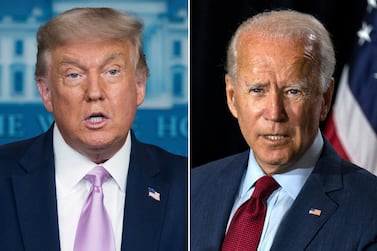The new US president will face key challenges including reviving economic growth and employment as economic activity will still be weaker than pre-pandemic levels in early 2021, according to Moody's Investors Service.
The new administration must also tackle the continuing increase in healthcare costs during the pandemic, rising federal government debt, tense relations with China and climate change-related risks, the ratings agency said in a report on Monday.
"The next administration will face a multi-faceted challenge of setting GDP on a path to pre-crises levels and ensuring that the population as a whole benefits from the recovery" Robard Williams, Moody's senior vice president, said. "A major question will be how to calibrate fiscal support and finance policy priorities without further weakening the government's fiscal position."
Gross domestic product in the US plunged 31.4 per cent in the second quarter, according to the third GDP estimate released by the Bureau of Economic Analysis at the US Commerce Department. The department will release its July-September GDP report on October 29, just five days before the presidential election.
An economic recovery will still be vulnerable to new Covid-19 outbreaks as a second wave of infections has forced governments to impose restrictions.
The ongoing pandemic has highlighted inequalities in the US healthcare system as medical costs "have continued to rise faster than many households' income", Moody's said.
"The size and important role of the US healthcare industry, from providers to insurers, to pharmaceutical and medical device manufacturers, amplifies the credit implications of policy actions in this area," the report said.
The next US president will also have to deal with an increasingly tense relationship with Beijing, rising protectionism and hardened attitudes against globalisation both at home and abroad, Moody's said.
"The response to these challenges will have ripple effects on credit conditions not just in the US, but around the world," the ratings agency said.
The world’s two biggest economies have clashed over issues including trade, technological rivalry, human rights and the coronavirus, which first appeared in China.
Environmental concerns have grown in importance among the US population in recent years, as the physical and economic costs associated with hurricanes, wildfires and other extreme weather-related events have become more severe, the report showed.
Wildfires in California have burned more than 4 million acres in 2020, more than twice the previous record for any year and an area larger than Connecticut, Reuters reported, citing the state’s fire agency on Monday.
"The next administration's decisions on environmental regulation, the carbon-intensity of growth and multilateral cooperation on climate change will affect a range of sectors including coal, oil and gas, utilities and automotive," Moody's said.








